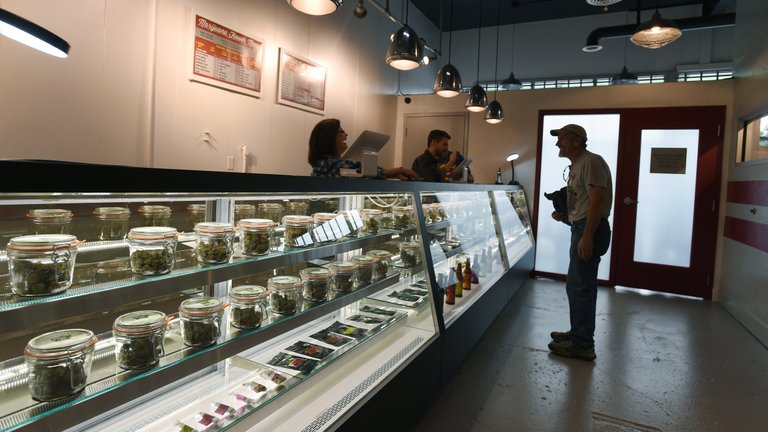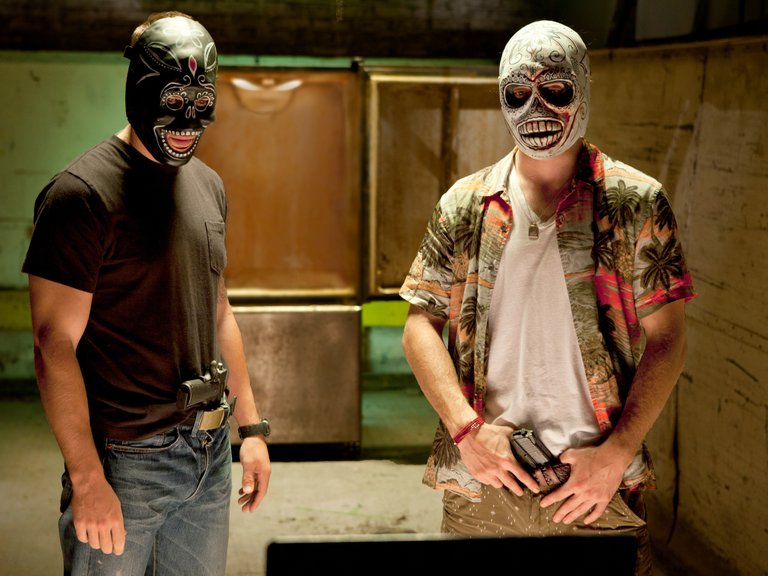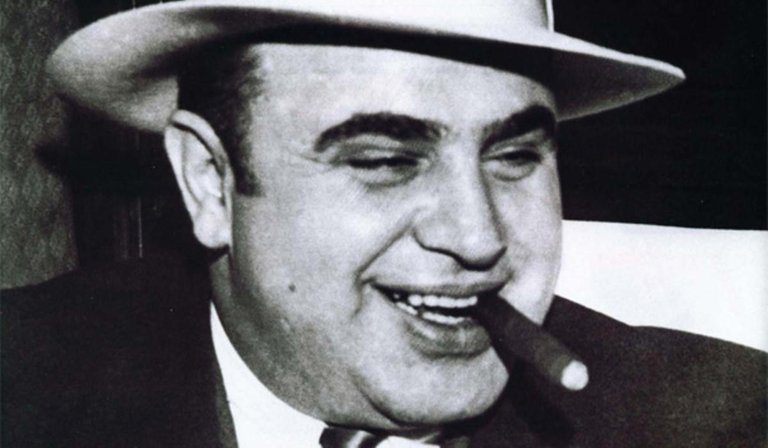
We are masters of our body. The sovereignty of the individual over our own body gives you the right to use any substances (including drugs) you want. If the state limit this freedom, he will be wrongfully taking possession of the body of the people, violating the most sacred private property.
The jurist Lysander Spooner distinguishes addiction and crime. In the first, a man only harms himself, while in the second, he the next victim.
The act to use drugs does not harm others. Therefore it can not be considered a crime. It can lead to personal ruin, but a person is not truly free without the freedom to make mistakes.
Attend the voluntary consumer demand by producing and selling something that does not cause harm to others is not an assault. This is what a drug dealer does.
Claiming that a ecstasy trader is assaulting a person who voluntarily seeks and asks you to provide your product makes as much sense as affirming that Heineken assaults alcoholics.
Prevent the free trade of drugs, on the other hand, generates wars and leads to the slaughter of innocents. The banned or heavily regulated markets are riddled with unscrupulous and violent offerers.
Empirically, it should have been more than obvious that violence goes hand in hand with markets suffering from large state ban. Drug dealers are not (completely) imprudent; they work for the money. To compensate for the high risk of operating in a market that was banned by the state, the monetary returns of the drug trade must be astronomical. Therefore, the benefit of gaining market share in the drug trade is huge. Each new customer can mean an extra income of thousands of dollars per month.
Consequently, for dealers, it makes sense to be hanging around school gates, selling their products to teenagers, or even giving free samples for beginners. While you never see representatives of Kellogg's Cornflakes selling spare boxes for children, because the additional customer does not pay the cost, but to a dealer this strategy makes perfect sense. Acquire new customers, even if only one, is something much more valuable and profitable for those operating in prohibited industries than for those operating in the free sector.
That's why kill a rival - and thus gain access to your customers - is much more lucrative in prohibited sectors. Territorial disputes of rival gangs currently taking place in large cities are a result of drug prohibition. These disputes do not occur, as some think, because the cocaine trade is something inherently "mad" or "fool".

State repression eliminates common producers, making prices soar. The increased profit potential attracts people with criminal skills and willing to do anything to increase its market share.
When the state threatens to arrest the producers of a particular item, it ends up changing market incentives, so that the violence is much more profitable for the industry. Consequently, those people who are predisposed to be a cruel killer earn an additional incentive to the illegal policy of certain markets, which allows them to prosper and become very rich in a society whose drug laws are strict.
The industry is prevented then dominated by gangs, and the inevitable consequence are armed conflicts between competitors. The crime is spreading throughout society.
Thus, the drug laws ultimately makes that sociopaths can earn millions a year selling drugs - with this money he can now buy automatic weapons, hire thugs, bribing police and become the king of the streets.

With Prohibition (1920 - 1933), when the production and sale of alcohol was banned in the US, homicides soared. In 1929, the mob of Al Capone killed their competitors Bugs Moran in a dispute over alcohol markets in Chicago. Today, it is unimaginable that Budweiser orders to blow up Heineken. On the other hand, we see the brutality of narcocartels in Mexico, where there are 8,000 annual murders linked to the war on drugs.
Poverty increases, both the fault of the taxes that finance the repressive apparatus, as the lower influx of investments in the areas taken by organized crime.
Some say that the drug user overloads public health. This argument opens dangerous precedents to authoritarianism, since the same could be said of obesity, smoking, sedentary, promiscuous, retirees and risk workers. Anyway, it is the decriminalization which would minimize damage to the user's health and their propensity to consume.
Prohibit or regulate causes rising prices and imposes barriers to entry, leading users to seek cheaper alternatives on the black market. This results in heavier or adulterated drugs manufactured without any parameters of safety and quality. This explains the dangerous mixed drinks sold during Prohibition.
Methamphetamine, called "cocaine of the poor", is the result of the prohibition of cocaine, as well as oxy, which is a byproduct of the crack (which, in turn, is a byproduct of cocaine). The "Opium Act" of 1878, through which the British regulated the opium trade in China, helped to spread the heroin addiction.
The price increase resulting from the increasing state repression does not inhibit the addict's desire, but depletes the resources it could invest in their own treatment. That's why US deaths from overdose of illicit drugs increased 540% between 1982 and 1996. It was in 1982 that the military and the CIA engaged in combating trafficking.

There was a time when all drugs were already released. Heroin was sold in pharmacies Belle Époque as an alternative antitussive morphine. There was tonics and analgesics based cocaine or opium, but the addiction was rare. The terror we know today results from state interference.
In a free and deregulated market competitors develop recreational and medicinal drugs increasingly safe, they would dispute quality certificates from private companies and would be subject to legal proceedings in case of fraud or defect. These private labels have credibility because they would be competing in the market and depending on their reputation to survive. A life lost because of a poorly tested product can mean your bankruptcy.
Conclusion
When the state assumes the role of the moral regulator, the institutions that would naturally be responsible for morality are weakened, relinquishing his duties. The individual becomes less zealous and more dependent, not to mention the appeal of the forbidden fruit. The moral inhibition of the drugs are the family, religion, culture, and not the bureaucrats.
It is foolhardy delegate moral choices to state enforcement agent, whose repressive campaign only increased the rate and severity of addiction. In states where it lasted the prohibition, opium consumption was 150% higher than the others. [1] In the Netherlands, the policy of "non-application of anti-drugs law" , which led to a decriminalization of fact marijuana, decreased the proportion of young users from 28% to 21%.
Where there is demand there will be someone willing to offer, which reduces the final approaches to the drug problem to just two: the first is that of Mao Tse-tung, who condemned the users to death (no human being with a minimum of decency would support such barbarism); the second is the total release.
[1] Thornton, Mark. 1991. The Economics of Prohibition. University of Utah Press. Page 61
Agreed. It's pretty simple: you are the main character of your own story. You don't let other people write your book and tell your character what you do, and when the book ends, so does your character. So, make sure you are writing your story and not someone else.
I agree with the way you are presenting it as a freedom. In some cases hard drugs could lead you to hurting others and personally I see why they are bad but I wouldn't be horrified over the thought of total legalization. I would like to add that recently John Ehrlichman, an advisor for Nixon, came out saying that the war on drugs was mainly a campaign technique used by Nixon to target blacks and hippies (his main campaign enemies). Sorry this got so long it's just like how fucked up is it that the main fight against all this had nothing to do with safety or well being but to target people that didn't agree with this one politician.
Very astute observations and ones that certainly echo through times of increased centralized governments. I would also venture to say that you may have missed a tag: economics. Hope to read more from you.
Indeed i missed economics.
Thanks :)
So happy I could help!